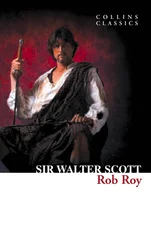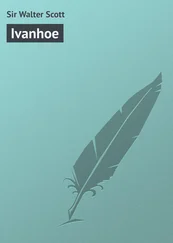Sir Scott - Ivanhoe
Здесь есть возможность читать онлайн «Sir Scott - Ivanhoe» — ознакомительный отрывок электронной книги совершенно бесплатно, а после прочтения отрывка купить полную версию. В некоторых случаях можно слушать аудио, скачать через торрент в формате fb2 и присутствует краткое содержание. Жанр: Старинная литература, на английском языке. Описание произведения, (предисловие) а так же отзывы посетителей доступны на портале библиотеки ЛибКат.
- Название:Ivanhoe
- Автор:
- Жанр:
- Год:неизвестен
- ISBN:нет данных
- Рейтинг книги:5 / 5. Голосов: 1
-
Избранное:Добавить в избранное
- Отзывы:
-
Ваша оценка:
- 100
- 1
- 2
- 3
- 4
- 5
Ivanhoe: краткое содержание, описание и аннотация
Предлагаем к чтению аннотацию, описание, краткое содержание или предисловие (зависит от того, что написал сам автор книги «Ivanhoe»). Если вы не нашли необходимую информацию о книге — напишите в комментариях, мы постараемся отыскать её.
Ivanhoe — читать онлайн ознакомительный отрывок
Ниже представлен текст книги, разбитый по страницам. Система сохранения места последней прочитанной страницы, позволяет с удобством читать онлайн бесплатно книгу «Ivanhoe», без необходимости каждый раз заново искать на чём Вы остановились. Поставьте закладку, и сможете в любой момент перейти на страницу, на которой закончили чтение.
Интервал:
Закладка:
—from an unsigned review in the North American Review (October 1864)
MARK TWAIN
A curious exemplification of the power of a single book for good or harm is shown in the effects wrought by Don Quixote and those wrought by Ivanhoe. The first swept the world’s admiration for the mediæval chivalry-silliness out of existence; and the other restored it. As far as our South is concerned, the good work done by Cervantes is pretty nearly a dead letter, so effectually has Scott’s pernicious work undermined it.
—from Life on the Mississippi (1883)
QUESTIONS
1. Professor Wood reminds us of parallels between the circumstances of the time in which Ivanhoe was written and those of the time in which it was set. He also reminds us why, later, American southerners found it attractive. But the novel has had, and continues to have, many readers who know nothing about such matters. What is its appeal?
2. Is the artificial dialogue in Ivanhoe a problem? Think how hard it would be to recover the colloquial English of Ivanhoe’s time. If you wanted to write a sequel, how would you solve the problem, on the one hand, of avoiding anachronisms and, on the other, of writing dialogue that is true to the way people spoke at that time? How would you know what was accurate and what was a product of your imagination?
3. How would you describe the function of the material about Robin Hood within the novel as a whole? Do he and his band serve as an implied commentary on the lifestyles of the other characters? Does he represent another, alternative way of living?
For Further Reading

BIOGRAPHIES OF SCOTT
Buchan, John. Sir Walter Scott. London and Toronto: Cassell and Company, 1932.
Clark, Arthur Melville. Sir Walter Scott: The Formative Years. Edinburgh and London: Blackwood, 1969.
Grierson, Sir Herbert. Sir Walter Scott: A New Life Supplementary to, and Corrective of, Lockhart’s Biography. London: Constable and Co., 1938.
Johnson, Edgar. Sir Walter Scott: The Great Unknown. 2 vols. London: Macmillan, 1970.
Lockhart, J. G. Memoirs of the Life of Sir Walter Scott. 7 vols. Edinburgh, 1837-1838.
Sutherland, John. The Life of Walter Scott. Oxford: Oxford University Press, 1995.
Wilson, A. N. The Laird of Abbotsford: A View of Sir Walter Scott. Oxford: Oxford University Press, 1980.
CRITICAL WORKS ON SCOTT
Beiderwell, Bruce. Power and Punishment in Scott’s Novels. Athens: University of Georgia Press, 1992.
Brown, David. Walter Scott and the Historical Imagination. London: Routledge, 1979.
Ferris, Ina. The Achievement of Literary Authority: Gender, History, and the Waverley Novels. Ithaca, NY: Cornell University Press, 1991.
Hart, Francis R. Scott’s Novels: The Plotting of Historic Survival. Charlottesville: University of Virginia Press, 1966.
Kerr, James. Fiction Against History: Scott as Storyteller. Cambridge: Cambridge University Press, 1989.
McMaster, Graham. Scott and Society. Cambridge: Cambridge University Press, 1981.
Mitchell, Jerome. Scott, Chaucer, and Medieval Romance: A Study in Sir Walter Scott’s Indebtedness to the Literature of the Middle Ages. Lexington: University of Kentucky Press, 1987.
Shaw, Harry E. The Forms of Historical Fiction: Sir Walter Scott and His Successors. Ithaca, NY: Cornell University Press, 1983.
Tulloch, Graham. The Language of Walter Scott: A Study of his Scottish and Period Language. London: Deutsch Press, 1980.
Wilt, Judith. Secret Leaves: The Novels of Walter Scott. Chicago: University of Chicago Press, 1985.
RELATED BOOKS ON THE MIDDLE AGES AND ITS LITERARY LEGACIES
Barber, Malcom. The New Knighthood: A History of the Order of the Temple. Cambridge: Cambridge University Press, 1994.
Chandler, Alice. A Dream of Order: The Medieval Ideal in Nineteenth-century English Literature. Lincoln: University of Nebraska Press, 1970.
Girouard, Mark. The Return to Camelot: Chivalry and the English Gentleman. New Haven, CT: Yale University Press, 1981.
Knight, Stephen. Robin Hood: A Complete Study of the English Outlaw. Oxford: Oxford University Press, 1994.
Poole, Austin Lane. From Domesday Book to Magna Carta, 1087-1216. Oxford: Clarendon Press, 1951.
Simmons, Clare A. Reversing the Conquest: History and Myth in Nineteenth-century British Literature. New Brunswick, NJ: Rutgers University Press, 1990.
WORKS CITED IN THE INTRODUCTION
Chesnutt, Charles W. The House Behind the Cedars. New York: Penguin, 1993.
Daiches, David. “Scott’s Achievement as a Novelist.” In Scott’s Mind and Art. Edited by A. Norman Jeffares. Edinburgh: Oliver and Boyd, 1969.
Lukács, György. The Historical Novel. Translated by Hannah and Stanley Mitchell. Boston: Beacon Press, 1962.
Scott, Sir Walter. Miscellaneous Prose Works, Vol. 6: Essays on Chivalry, Romance, and the Drama. Edinburgh: Cadell, 1834?
Sutherland, John. The Life of Sir Walter Scott. Oxford: Blackwell, 1995.
Twain, Mark. Mississippi Writings. New York: Literary Classics of the United States: Library of America, 1982.
. Letters. Vol. 2. Edited by Albert Bigelow Paine. New York: Harper and Brothers, 1917.
a
The spoiled child (French).
b
This very curious poem, long a desideratum in Scottish literature, and given up as irrecoverably lost, was lately brought to light by the researches of Dr. Irvine of the Advocates’ Library, and has been reprinted by Mr. David Laing, Edinburgh [author’s note].
c
Vol. II, p. 167 [author’s note].
d
Like the hermit, the shepherd makes havock amongst the king’s game; but by means of a sling, not of a bow; like the hermit, too, he has his peculiar phrases of compotation, the sign and countersign being Passelodion and Berafriend. One can scarce conceive what humour our ancestors found in this species of gibberish; but “I warrant it proved an excuse for the glass.’ [author’s note].
e
Let it be given to someone more worthy (Latin).
f
Green woolen cloth, similar to Lincoln green; both colors are associated with Robin Hood.
g
Private life (French).
h
That is, Gothic types.
i
Island on Loch Lomond, Scotland.
j
Ancient Persian city.
k
Source of fake diamonds.
l
That is, gallstones.
m
This anticipation proved but too true, as my learned correspondent did not receive my letter until a twelvemonth after it was written. I mention this circumstance, that a gentleman attached to the cause of learning, who now holds the principal control of the post-office, may consider whether, by some mitigation of the present enormous rates, some favour might not be shown to the correspondents of the principal Literary and Antiquarian Societies. I understand, indeed, that this experiment was once tried, but that the mail-coach having broke down under the weight of packages addressed to members of the Society of Antiquaries, it is relinquished as a hazardous experiment. Surely, however, it would be possible to build these vehicles in a form more substantial, stronger in the perch, and broader in the wheels, so as to support the weight of antiquarian learning; when, if they should be found to travel more slowly, they would be not the less agreeable to quiet travellers like myself.—L. T. [author’s note].
Читать дальшеИнтервал:
Закладка:
Похожие книги на «Ivanhoe»
Представляем Вашему вниманию похожие книги на «Ivanhoe» списком для выбора. Мы отобрали схожую по названию и смыслу литературу в надежде предоставить читателям больше вариантов отыскать новые, интересные, ещё непрочитанные произведения.
Обсуждение, отзывы о книге «Ivanhoe» и просто собственные мнения читателей. Оставьте ваши комментарии, напишите, что Вы думаете о произведении, его смысле или главных героях. Укажите что конкретно понравилось, а что нет, и почему Вы так считаете.










